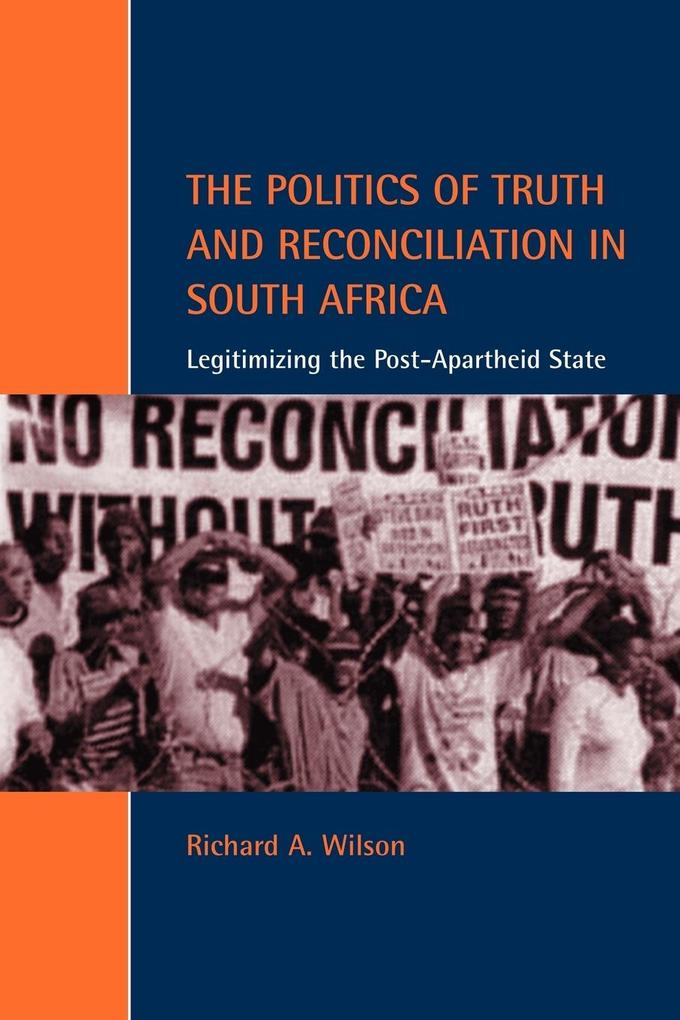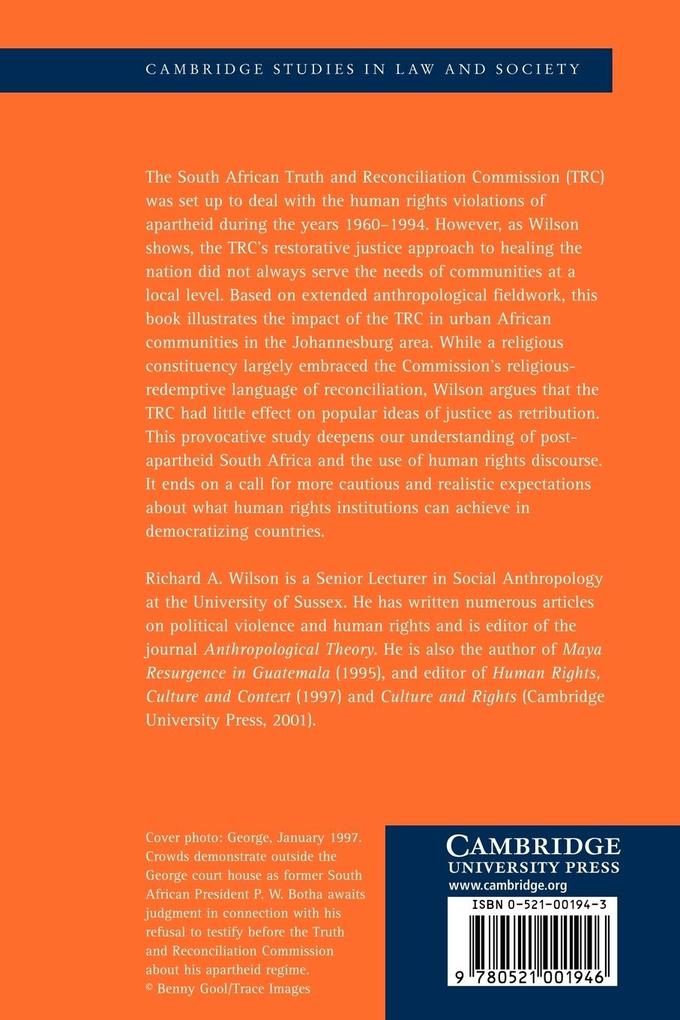
Zustellung: Di, 15.07. - Fr, 18.07.
Versand in 5 Tagen
VersandkostenfreiThis book shows the impact of the TRC in urban African communities in Johannesburg.
Inhaltsverzeichnis
List of acronyms and glossary; Maps; Preface and acknowledgements; 1. Human rights and nation-building; Part I. Human Rights and Truth: 2. Technologies of truth: the TRC's truth-making machine; 3. The politics of truth and human rights; Part II. Reconciliation; Retribution and Revenge: 4. Reconciliation through truth? ; 5. Reconciliation in society: religious values and procedural pragmatism; 6. Vengeance, revenge and retribution; 7. Reconciliation with a vengeance; 8. Conclusions: human rights, reconciliation and retribution; Notes; Bibliography; Index.
Produktdetails
Erscheinungsdatum
15. Juni 2006
Sprache
englisch
Seitenanzahl
296
Autor/Autorin
Richard Wilson, Rich Wilson
Herausgegeben von
Chris Arup
Verlag/Hersteller
Produktart
kartoniert
Gewicht
484 g
Größe (L/B/H)
229/152/18 mm
ISBN
9780521001946
Entdecken Sie mehr
Pressestimmen
'Wilson's careful analysis of the commission's work is instructive for all those who seek to assist nations and peoples in the transition from dictatorship to democracy.' Law Society Journal 'This book is a thoughtful and in depth study of post-apartheid South Africa which pulls no punches in its description of that society and the workings of the TRC.' Dr Srechko Konteli, Law Institute Journal '... compelling ... Wilson offers anthropological fieldwork carried out among black township populations. This research provides an illuminating account of how the TRC's work failed to take into account the wishes and worldviews of this important and large sector of the population ...'. Karima Bennoune, European Journal of International Law 'Just about the best thing written on the TRC so far, it is deeply analytical yet broad in scope. Wilson offers us engaging chapters of the TRC's political life, the way in which it gathered information, and popular understandings of vengeance and retribution in urban African communities around Johannesburg ... This is a remarkable book. it should be read by anyone wishing to cut through much of the flotsam which has come to characterize talk of forgiveness and reconciliation in post-apartheid South Africa. It will be of use to historians as a trenchant contemporary evaluation of the TRC's work.' Journal of African History 'This book is an important and careful analysis of the workings of the South African Truth and Reconciliation Commission (TRC) ... stringently and persuasively argued ...'. The Round Table 'Throughout this carefully considered book, he combines cool scholarly analysis with passionately held humane opinions. It is a fine piece of work.' The Journal of the Royal Anthropological Institute 'Wilson's study makes a strong and convincing argument.' Journal of Southern African Studies
Bewertungen
0 Bewertungen
Es wurden noch keine Bewertungen abgegeben. Schreiben Sie die erste Bewertung zu "The Politics of Truth and Reconciliation in South Africa" und helfen Sie damit anderen bei der Kaufentscheidung.








